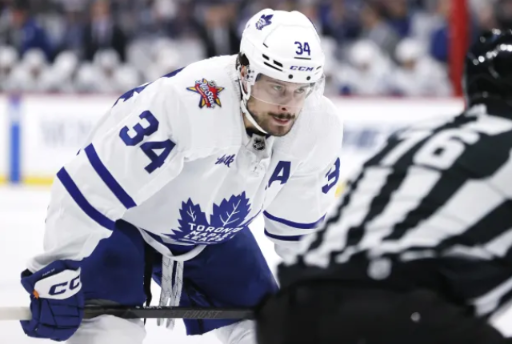Navigating the relationship between NHL players and the league’s Department of Player Safety (DOPS) is a nuanced endeavor. On one hand, the DOPS aims to prioritize player safety, while on the other, it enforces strict penalties for infractions, blurring the line between legal and illegal play. Even top-tier players like Auston Matthews can find themselves at odds with the DOPS, leading to a process where players have the opportunity to defend themselves.
Recently, Auston Matthews of the Toronto Maple Leafs expressed skepticism regarding the impact of his statements during a hearing with DOPS officials in 2022. Following an incident where he cross-checked Buffalo defenseman Rasmus Dahlin, resulting in a two-game suspension, Matthews stated, “It’s definitely very eye-opening. I felt like my bed was already made when I hopped on that phone for the meeting.”
When an average NHL player voices discontent over a suspension, it typically doesn’t reverberate throughout the league. However, when a player of Matthews’ stature speaks out, his words carry weight even at the highest levels of the sport.
Drawing a parallel, Brendan Shanahan, now the president of the Toronto Maple Leafs, made significant waves during his tenure as a retired star by advocating for changes to improve the game’s enjoyment and entertainment value. While Matthews has yet to follow a similar path, his willingness to speak out could pave the way for future advocacy efforts.
It’s important to note that advocating for players’ rights does not equate to absolving them of responsibility. Matthews’ suspension, like many others, was justified based on the infraction. However, the opportunity for players to voice their perspective during hearings can potentially influence the severity of the punishment.
Although appeals to the NHL commissioner, such as the recent case involving Leafs defenseman Morgan Rielly’s five-game suspension, often uphold the DOPS’ decision, players still deserve the chance to defend themselves. This process, both behind closed doors and in the public eye, allows players to mitigate the repercussions of their actions.
Matthews was likely correct in his assessment that his fate was sealed after the cross-check on Dahlin, just as Rielly faced consequences for his actions against Ottawa’s Ridly Greig. While the DOPS aims for impartiality, allowing players to present their case contributes to a fairer disciplinary process.
In conclusion, advocating for player rights and perspectives is crucial for fostering a safer and more equitable environment within the NHL. As the league strives for improvement, considering all viewpoints before issuing rulings is essential.
